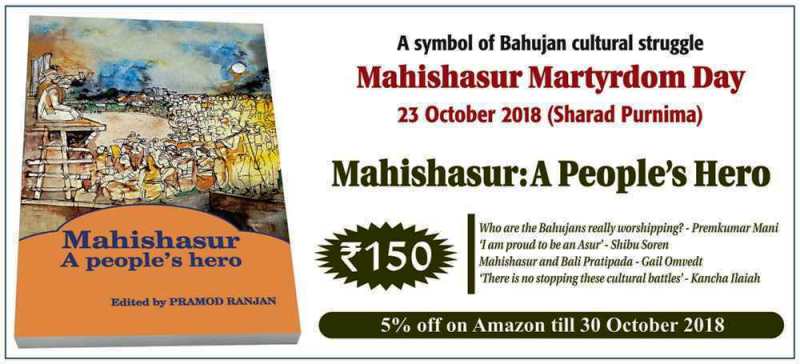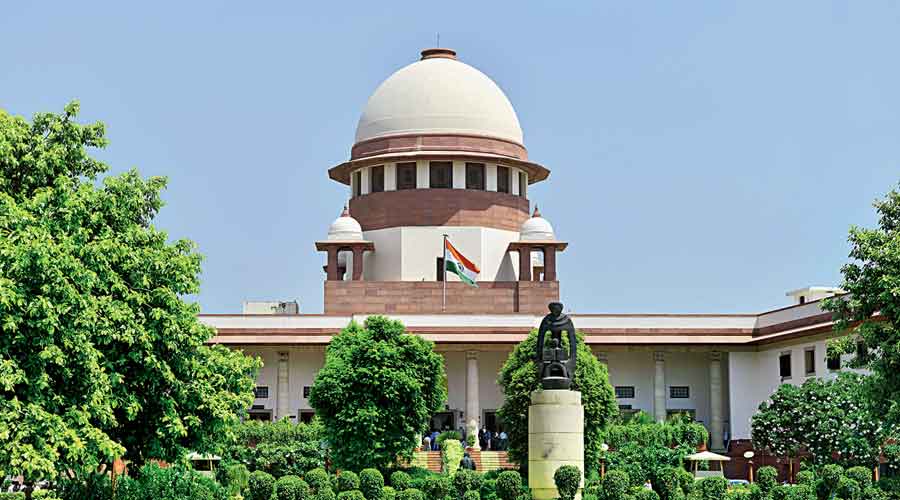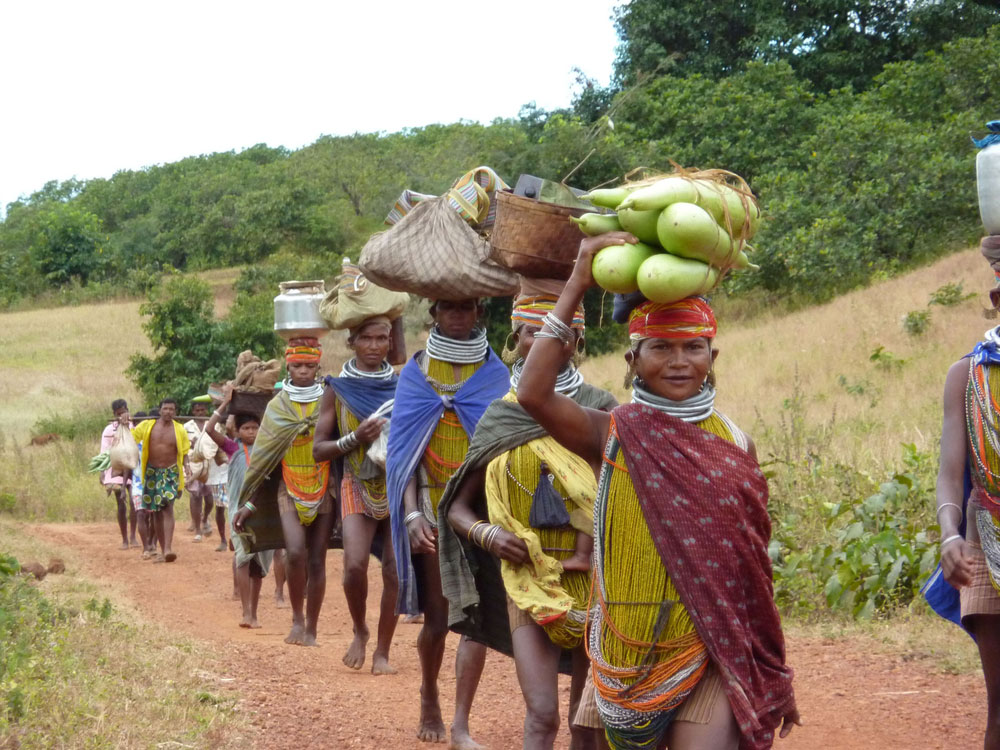Hinduism is the only religion which has the tradition of barring the women and the Shudras from getting education. And that is not all. They are also barred from entering many temples and participating in the rituals. The British, by promulgating laws, had abolished many such cruel and barbaric traditions. By universalizing education, they broke the back of the ‘Streeshudronadheeyatam’ shruti, which says that education should not be imparted to women and Shudras. The first school for women and Shudras was established by Jotirao Phule, a Shudra himself, in Maharashtra. No Brahmin did that. In fact, the Brahmins were against educating women and Shudras. Jotirao Phule and his wife Savitri Phule, who was the first woman teacher of the country, were attacked for educating women and Shudras. It may be a surprise to the world that the Brahmins, who took pride in their tradition of thousands of years, did not educate even a single woman or Shudra till the British came to India. But when the British opened the doors of education for all, Brahmins and the landlords took maximum advantage of this. Just go through any Hindi newspaper or magazine of that era and you will find in them pictures of women who did matriculation or completed their graduation. These pictures were published with great pride.
Such discrimination does not exist in other Indian religions such as Jainism, Buddhism and Sikhism. The entry of women and Shudras is not barred in the places of worship of these religions but even today, many Hindu temples do not allow entry of women and Shudras. One such temple is the Sabarimala Temple in Kerala, which does not permit entry of women of menstruating age (10-50 years). The Supreme Court considered this ban violative of the Rights to Freedom and Equality enshrined in the Constitution and abolished it. This was a victory for the women who were agitating for years to secure the right to enter the sanctum sanctorum at Sabarimala. Traditions are not immortal and eternal. They keep on changing with the times. Innumerable traditions were consigned to dustbins of history in the past and innumerable temples and rituals disappeared forever. This tradition of the Ayyappa temple also had to end at some point.

But the mayhem and violence unleashed in Kerala to protest the Supreme Court judgment is not spontaneous, but sponsored and orchestrated. It is being sustained by the RSS, which wants to strike roots in Kerala via Hindu ritualism and wants to bring the BJP to power. Issues related to temples and mosques have always been dear to the RSS because its so-called Hindu Rashtra (Nation) is based on them. But the RSS is bound to bite the dust in Kerala because, as BJP’s Hindu leader Subramanian Swamy commented, this is a struggle between obscurantism and progressivism.
ALSO READ: EXCLUSION OF WOMEN FROM SABARIMALA AMOUNTS TO UNTOUCHABILITY: JUSTICE CHANDRACHUD
The struggle between obscurantism and progressivism in Hindu society has been so intense and so frequent that on many an occasion, Brahmanism was completely wiped out. The Buddhist revolution had dealt such a deadly blow to the Brahmanism that had it not sought the sanctuary of Kshatriya kings and made compromises by dumping its gods and adopting Kshatriya heroes, it would have never been revived. Does the RSS want the struggle between obscurantism and progressivism in India, which had petered out in the beginning of the 20th century after the Mahad and Nasik Satyagrahas by Dr Ambedkar, to revive again? If this battle intensifies and spreads across the nation, Hindu nationalism will be blown to smithereens. Because, then the battle will not remain limited to temples alone, but will also bring in many other issues along with it, including awareness among the women and the Shudras. But the RSS does not want to talk about these issues because they are a threat to its very existence and interests.
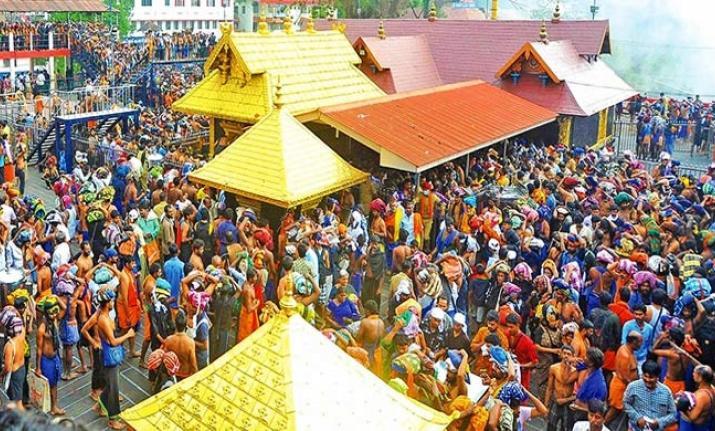
Is the struggle in Kerala taking place between obscurantists and progressives, as Subramanian Swamy suggests? No. Not at all. This struggle is actually between the obscurantists themselves. The women who are using force to stop women of menstruating age from entering the sanctum sanctorum of Lord Ayyappa are definitely obscurantists. But the women who visit or want to enter the sanctum sanctorum are also obscurantists. In fact, they are more obscurantist because they do not understand that the god who feels insecure at the mere sight of women has no godliness. The traditionalists want to protect the tradition – hence they are obscurantists. Those opposing the tradition are not progressives. They are also obscurantists as they are seeking salvation in the temple. Opposing a tradition is not always progressive.
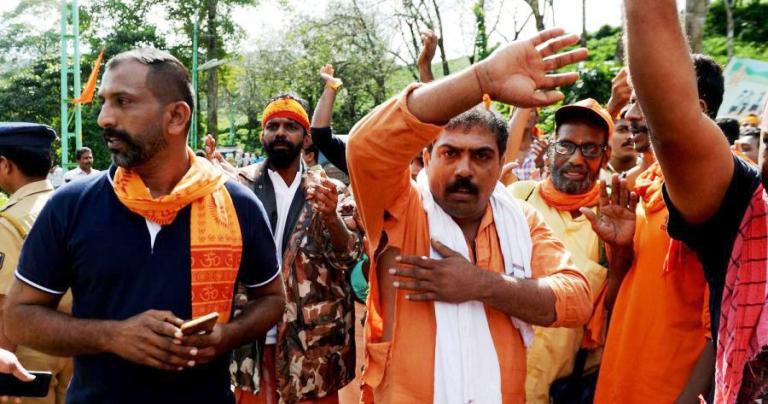
Here, it would be pertinent to talk about the temple-entry movement launched by Dr Ambedkar. In Nasik, the Dalits did not have the right to enter the Kalaram Temple and to pull the chariot of Ram. To secure this right, a major Satyagraha was launched under the leadership of Dr Ambedkar. It was decided that on the Dussehra day, the Dalits would also pull the chariot and would enter the temple. The news spread like wildfire. The traditionalist Hindus wanted to stop the entry of Dalits at any cost while the reformist Hindus were in its favour. Violence broke out on the day of the rathyatra (chariot festival) and the conservative elements attacked the unarmed Dalits with sticks.
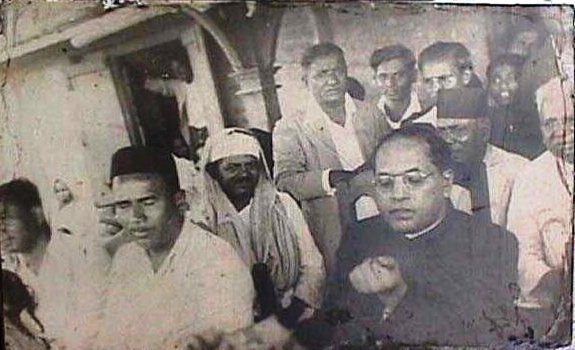
Dr Ambedkar also suffered a head injury. But the final outcome was that the Brahmins closed the doors of the temple for an indefinite period and the rathyatra was postponed. The Dalits also postponed their Satyagraha but did not end it. Later, Dr Ambedkar announced the end of the Satyagraha and said that its aim was just to make the Dalits get an idea of their position in Hindu religion and society. And that objective had been achieved. Ambedkar said: “Our objective is not to enter temples but to be partners in governance and administration. We will set our standards politically, not with temples. We have to keep ourselves away from the hypocrisy of temples and educate ourselves. In education lies our salvation. Hindus who are not ready to allow us into temples can hardly be expected to give us political rights. So, our future movement should be political.”
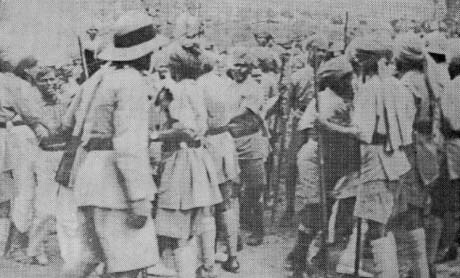
In Kerala too, a leadership should emerge, which, like Ambedkar, should make people aware that a religion which talks of “Streeshudronadheeyatam” can never do any good to the women and the Shudras – a leadership which can turn them away from the temple and stop them from becoming fodder for gods like Ayyappa. We cannot hope that those who have unleashed violence in the name of tradition will be the harbingers of such a revolution. Neither can we expect the Left Front government of Kerala to do any such thing. After all, it too needs votes. Politics of votes can never bring about a revolution. But if a decisive battle between obscurantism and progressivism begins in the country, it can definitely yield positive results.
Translation: Amrish, copy-editing: R. Sugathan/Lokesh
Forward Press also publishes books on Bahujan issues. Forward Press Books sheds light on the widespread problems as well as the finer aspects of Bahujan (Dalit, OBC, Adivasi, Nomadic, Pasmanda) society, culture, literature and politics. Contact us for a list of FP Books’ titles and to order. Mobile: +917827427311, Email: info@forwardmagazine.in)
The titles from Forward Press Books are also available on Kindle and these e-books cost less than their print versions. Browse and buy:
The Case for Bahujan Literature
Dalit Panthers: An Authoritative History
